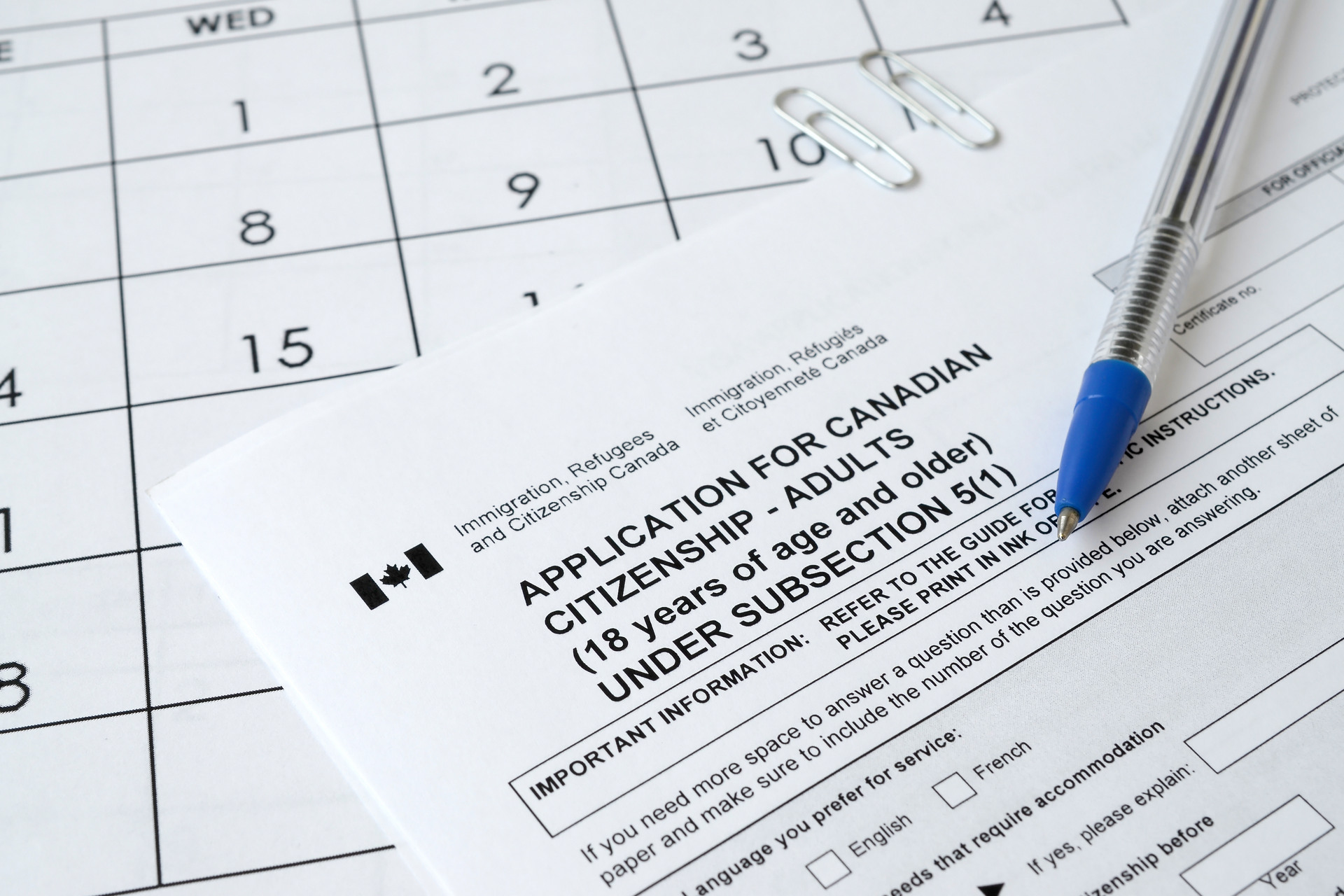
Discovering your potential claim to Canadian citizenship by descent can be both exciting and overwhelming. Many individuals are unaware that having a Canadian parent may entitle them to citizenship, even if they were born outside of Canada. However, managing the complex rules if you’re eligible for Canadian citizenship requires careful attention to detail and knowledge of the Canadian immigration system.
The consequences of misunderstanding these rules can be significant – from missed opportunities for you and your family members to establish lives in Canada, to rejected applications that waste time and money, or even unintentionally losing citizenship rights that might have been available to you.
Our immigration lawyer in Toronto will help determine your eligibility for Canadian citizenship by descent and guide you through the application process.
Yes, Canada does allow birthright citizenship, meaning anyone born on Canadian soil automatically becomes a Canadian citizen, with very few exceptions. This is different from many European countries where a child’s citizenship depends on their parents’ status. Canada’s approach to citizenship is outlined in the Canadian Citizenship Act (R.S.C., 1985), which establishes both birthright citizenship and citizenship through descent.
Birthright citizenship is straightforward, but citizenship by descent involves more specific rules and regulations that can be complicated to manage without proper guidance.
⚠️ Parents need to confirm eligibility carefully before assuming their child has citizenship by descent. Many families discover too late that the first generation rule affects their children’s status.
Canadian citizenship by descent refers to individuals born outside of Canada who automatically qualify as Canadian citizens because at least one of their parents was a Canadian citizen at the time of their birth. This is distinct from birthright citizenship, which applies to those born within Canada’s borders.
A well-known example is Elon Musk, who was born in South Africa but obtained Canadian citizenship through his mother, who was born in Saskatchewan. This demonstrates how citizenship through descent works—even without setting foot in Canada, eligible individuals can inherit Canadian citizenship from their parent’s status.
It is also important to understand the difference between a Canadian citizen vs permanent resident, as only citizens—not permanent residents—can pass citizenship by descent to their children.

When it comes to acquiring Canadian citizenship by birth, there are clear guidelines that determine eligibility:
📌 Registering a child’s birth abroad does not automatically confirm citizenship—proper documentation and proof of the parent’s Canadian status are still required.
Canadian citizens can pass citizenship to their children born outside Canada, but this requires submitting a proof of citizenship application. This process verifies the parent-child relationship and confirms the parent’s status as a Canadian citizen.
The first generation limit is a critical consideration: while children of Canadians born abroad usually qualify for citizenship, grandchildren born abroad do not automatically qualify unless specific conditions are met.
| Parent’s Citizenship Status | Child Born in Canada | Child Born Abroad |
|---|---|---|
| Canadian at birth | Citizen | Citizen (1st generation only) |
| Naturalized in Canada | Citizen | Citizen (1st generation only) |
| Permanent Resident | Citizen | Not a citizen by descent |
The first generation limit established in 2009 creates important restrictions that affect many families:
Contact our immigration lawyer in Brampton today to discuss your Canadian citizenship by descent case and explore your options.
Bill C-71 represents a significant expansion of citizenship by descent rights that will affect many families with Canadian connections. The new legislation will modify the current first generation limit by allowing citizenship to individuals beyond the first generation if the Canadian parent has spent sufficient time in Canada—specifically, at least 1,095 days (three years) of physical residence.
This change aims to recognize stronger connections to Canada and provide citizenship to individuals who would have previously been excluded under the strict first-generation rule. According to the Canadian Parliament’s official records, these amendments respond to long-standing concerns about fairness in citizenship laws.
To apply for a Canadian citizenship certificate, you’ll need to submit several documents that establish your claim to citizenship by descent:
Immigration, Refugees and Citizenship Canada (IRCC) currently processes proof of citizenship applications in approximately 5-10 months, though processing time may vary based on application volume and complexity.
💡 Check IRCC’s website regularly for updated processing times and fee information. Submitting incomplete documentation can significantly delay your application, so ensure all paperwork is in order before submission.
Additional reading: Canadian Citizen vs Permanent Resident
Scenario 1: Maria was born in Brazil to a father who left Canada as a child. Her grandmother was born in Canada, but her father was born in Portugal. Under current rules, Maria doesn’t qualify for citizenship by descent due to the first-generation limit, as her father was also born outside Canada.
Scenario 2: The Rodriguez family adopted a child from the Philippines while working abroad. They are both Canadian citizens born in Canada. Their adopted child may qualify for Canadian citizenship, but must follow specific regulations for adopted children that include additional documentation of the legal adoption.
Scenario 3: James believes his father was Canadian but has no documentation to prove it. With his father deceased and no birth certificate available, he faces challenges establishing his claim to Canadian citizenship. In such cases, alternative evidence such as baptismal records, school documents, or affidavits from family members may be considered.

Managing citizenship by descent applications requires attention to detail and knowledge of Canadian immigration law. Our Canadian immigration lawyer will provide invaluable assistance by:
📌 Getting professional legal help significantly improves your chances of a successful application. Many rejected citizenship applications result from misunderstanding the requirements or submitting inadequate documentation.
At Kingwell Immigration Law, we assist clients with proof of citizenship applications daily. Our expertise helps ensure your application meets all requirements and addresses potential complications before submission.
Schedule a consultation today or contact us at (416) 988-8853 to explore your eligibility for citizenship by descent.

If standard documentation is unavailable, you may submit alternative evidence such as old passports, voting records, or employment history. Our immigration lawyer will help identify acceptable substitutes for missing documents and strengthen your case through affidavits and supporting testimony from relatives who can confirm your parent’s citizenship status.
Yes, adopted children may be eligible for Canadian citizenship if at least one adoptive parent was a Canadian citizen when the adoption was completed. The adoption must be legal and recognized in both the country where it occurred and in Canada. Different rules may apply depending on when the adoption took place, and the process requires specific documentation of the adoption proceedings.
The current processing time for a citizenship certificate application is approximately 5-10 months for standard processing. Urgent processing may be available in certain circumstances, such as serious illness, death in the family, or job requirements. The government of Canada regularly updates processing times on the IRCC website, so check there for the most current information.
No, Canadian citizens do not lose their citizenship simply by living outside of Canada for extended periods. Once citizenship is granted, it remains valid regardless of where you live, unless you formally renounce it. However, the first generation limit may affect your child’s ability to pass citizenship to their children if those children are born outside Canada.